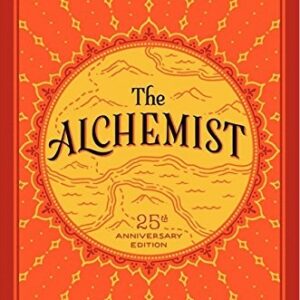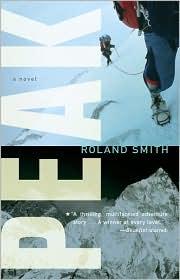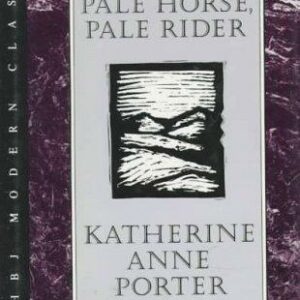Auction
$18.00
| Title | Range | Discount |
|---|---|---|
| Trade Discount | 5 + | 25% |
- Description
- Additional information
Description
Poems about the Freedom That Arises When We Finally Let Go In Auction, her first poetry collection in eight years, the poet, novelist, and playwright Quan Barry travels the globe in her signature quest into the existential nature of experience. These poems explore the inner landscapes of both the human and animal realms, revealing them to be points along the same spectrum. At the heart of the book lies an extended study of toxic storytelling as an element of warcraft, but Barry also contemplates the death of a Buddhist master, the plight of migrants both at home and abroad, the ethics of travel and consumption, and the larger question of how and why we construct a self in order to navigate the world.
Praise for Loose Strife: “Barry risks the lurid, and the knowing, but comes out more like a prophet, overwhelmed—sometimes sublimely so—by the first- and second-hand truths she must convey.” —Publishers Weekly starred review
Praise for Loose Strife:“Barry offers a difficult, sophisticated look at violence in personal, historical, and textual forms.” —Booklist Praise for Loose Strife: “An intriguing aesthetic choice in this book is Barry’s use of the self-referential. . . . Some of this initially comes across as unnecessary exposition, but turns out to be a declaration of a calling to follow a most disquieting muse, a sustained exploration of a moment of despair expressed in Aeschylus’ Oresteia: ‘Where will it end? / Where will it sink to sleep and rest, this murderous hate, this Fury?’ Loose Strife, which ultimately stitches together the dark history of humanity into a single volume of verse, is Barry’s most compelling response yet to that question: hate doesn’t end, hate doesn’t stop.” —Los Angeles Review of Books Quan Barry is the Lorraine Hansberry Professor of English at the University of Wisconsin–Madison. Born in Saigon and raised on Boston’s north shore, Barry is the author of seven books of fiction and poetry, including the novel When I’m Gone, Look for Me in the East. She is one of a select group of writers to receive National Endowment for the Arts fellowships in both poetry and fiction. In 2021 her novel We Ride Upon Sticks was awarded the American Library Association’s Alex Award. Barry’s first play production, The Mytilenean Debate, premiered in spring 2022. She is currently Forward Theater’s first ever writer-in-residence.
APARTMENT A, UNIT 2 —after Do Ho Suh
That place on the bottom of any sandy lake where sometimes I see it in the 30-odd seconds I can go without breathing, there undulating among the lake grass, this silent presence, how this is just another way to think of it, this the apartment’s equivalent—what it looks like when the refrigerator leaves its own body, the afterimage as even an appliance is allowed to remember that once it was infinite and still is, home like a medusa, that ghostly lantern pulsing in the dark, the things we see in the first moments after we pull the cord and throw the world into night: this house is souled, this room is souled, this toilet souled, the stove souled, beyond good and evil, beyond the body’s steel and glass, beyond even the metaphor of the soul as a pillar of light, as a thing we can only intuit, pray we have. AUCTION What was I wearing? . . . I don’t recall. . . . I remember walking down a series of switchbacks away from the Italianate mansion where all of her children died. . . . Night was entering, inching over the world horizontally from right to left, the moon’s structured whiteness an objet d’art. . . . Then we arrived at the beautiful space filled with beautiful gold-flecked people. . . . Everywhere strings of light, illuminated filigree, a world webbed with stars, the feeling of bodily effervescing. . . . No, I hadn’t been to the track. . . . I’d heard that was where squalor lived, a barely contained seediness that was allowed. . . . I am one who has been reared to prefer the cultivated, even the men trailing with push brooms in tuxedoes as they sweep up the bready droppings that break apart so easily, loosing their fragrance of grass and earth. . . . Why should this veneer fail me now? . . . Watching the crowd lean forward, smelling their hunger, the sound of the gavel falling like a cudgel on a head, and the good people rushing forward to shake the hand of the victorious. . . . I saw our history in it, roped right there in the ring. . . . The muscled beauty of excellence, the monocular acuity, how the breadth of the eye evolved for speed. . . . It stood on the dais as the groom lovingly turned its best side to the light, its best side being every side, coat gleaming like blackest water. . . . The whole room instantly aroused— the men’s pants tenting, the women with their sudden secretions as happens when you are in the presence of the holiest of forms. . . . It was looking at us with an awareness beyond time, casting its fifty-foot parabolic gaze broadly over the earth. . . . Admittedly, as my mind filled with images of heated brands and whips, I thought of Christ last, the petals of blood licking His face. . . . It was every being who has ever stood centerstage in chains— all of us implicated simply by being there regardless of sympathy or intent. . . . Ecce homo. . . . Then I heard a voice shout “2.2” and another go higher. . . . The most pragmatic teaching Jesus ever gave: render unto Caesar what is Caesar’s, render unto God what is God’s. . . . The gavel finally falling on 2.8 million. . . . But what if we don’t know the difference? . . . No, it wasn’t just my presence that made me a participant to spectacle, which explains why I’ve carried this haunting ever since. . . . He said the poor will be with us always, and I ran with it—I let it let me off the hook. . . . Then the groom, tuxedo dark as ink, himself descended from such brutality, turned and led it out. LIVING FOSSIL, LIVING GOD Admittedly, there is something about its face, the boxy pugilistic snout, the prehistoric eyes that seem to stare down through 80 million years back to the very days of T-rex. Though taxonomically the frilled shark is no snake cutting through the lightless waters 5,000 feet down, the creature looks to be the very essence of the reptilian brain—cold-blooded, beyond even the crocodile, that seemingly soul-less armory of plates, a creature grounded wholly in the now with no inner life beyond the moment. What would it be to be this presence skirting through the dark with its rows of teeth, a consciousness beyond mind that watches what mind does, its sorrows, a being that grows its young for three and a half years in the dark night of its belly, the longest gestation of any in the animal kingdom, and how it only comes to us from time to time, pulled up in some fisherman’s net for all to behold the undying wonders of the sea? To have lived on into the anthropocene, this creature mostly blind, simply structured, unchanging, feeding on small squids and fishes, others of its kind— please don’t misunderstand. I believe God does not exist in time, but because we do, we cannot understand It. But imagine eighty million years, passing second by second. When I look at this silvery beast, I see God.Additional information
| Dimensions | 1 × 6 × 9 in |
|---|






